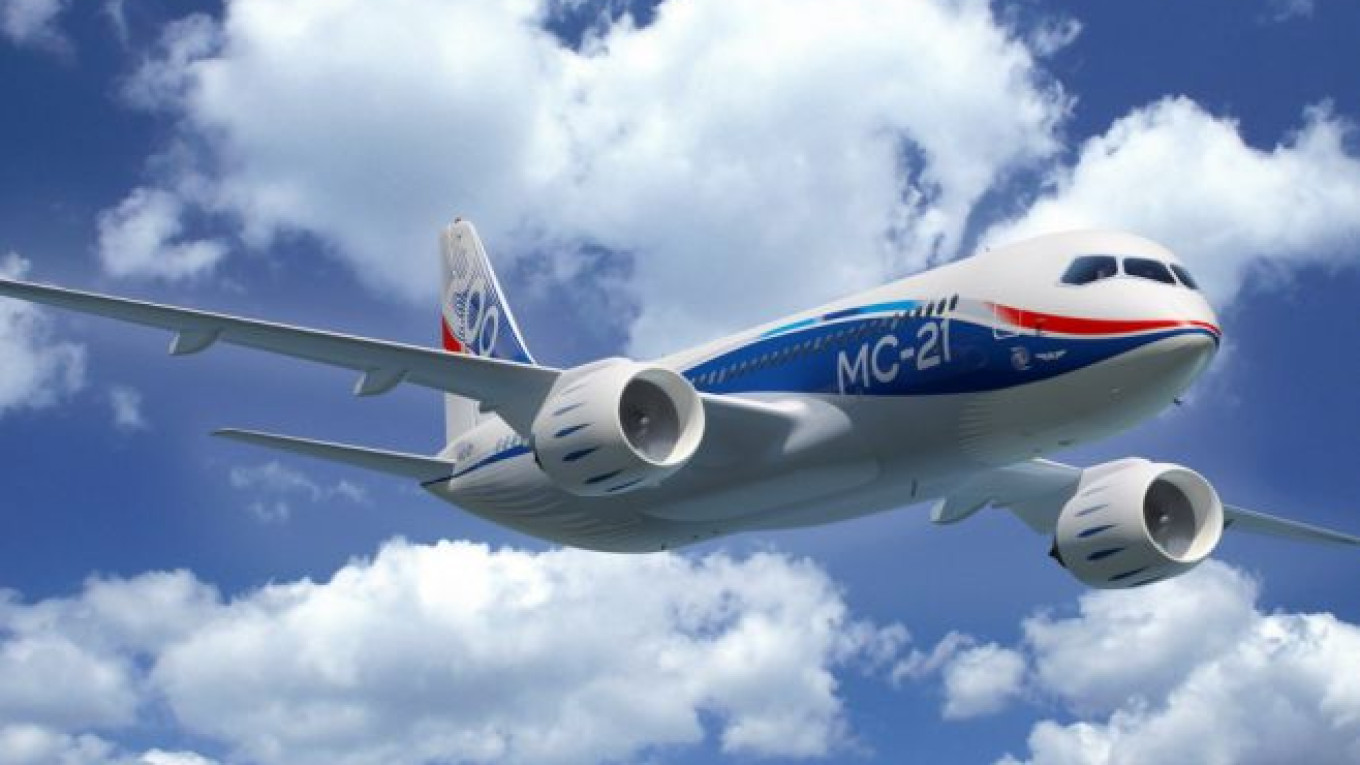The government will guarantee loans of up to $400 million to help fund Russia's next-generation civilian airliner, the MC-21, as Russia fights to curb the threat of Western sanctions that could deprive Russian airlines of their Boeing and Airbus fleets.
The guarantee, which bolsters an investment program in the twin-engine medium range plane worth almost $4 billion, was announced in a decree published on the government's website Wednesday.
Since the crisis in Ukraine expanded into a sanctions tit-for-tat between Russia and the West, the Russian government has poured new zeal into boosting domestic production in sensitive industries, including civil aviation.
Years of underinvestment have weakened Russia's civil aviation industry, and 90 percent of the fleets operated by Russia's major airlines are Boeings and Airbuses leased from Western leasing companies.
This proved the achilles heel of Aeroflot subsidiary Dobrolyot earlier this month. The company was blacklisted by the EU in July for flying to Crimea, the territory annexed from Ukraine by Russia in March, nixing the company's leasing agreements and leaving it plane-less.
Wednesday's government order backs a 10-year $400 million loan by state-owned lender Sberbank to Russian aircraft maker Irkut, the designer of the MC-21 family of civilian airplanes. The loan is part of a 10-year fixed payment credit line worth over $1 billion, the document said.
The MC-21 is intended to replace the aging Tupolev Tu-154 and Tu-204 airliners, and will compete with foreign aircraft such as the Airbus A320 and Boeing 737. Production models are expected to start rolling off the factory floor in 2017, but the plane has not even been tested yet. A prototype was supposed to fly in 2014, but has been delayed till 2015.
See also:
Sanctions Would Ground Russia's Major Airlines
Russian Civilian Aircraft Engine Program to Get Government Backed Financing
A Message from The Moscow Times:
Dear readers,
We are facing unprecedented challenges. Russia's Prosecutor General's Office has designated The Moscow Times as an "undesirable" organization, criminalizing our work and putting our staff at risk of prosecution. This follows our earlier unjust labeling as a "foreign agent."
These actions are direct attempts to silence independent journalism in Russia. The authorities claim our work "discredits the decisions of the Russian leadership." We see things differently: we strive to provide accurate, unbiased reporting on Russia.
We, the journalists of The Moscow Times, refuse to be silenced. But to continue our work, we need your help.
Your support, no matter how small, makes a world of difference. If you can, please support us monthly starting from just $2. It's quick to set up, and every contribution makes a significant impact.
By supporting The Moscow Times, you're defending open, independent journalism in the face of repression. Thank you for standing with us.
Remind me later.


